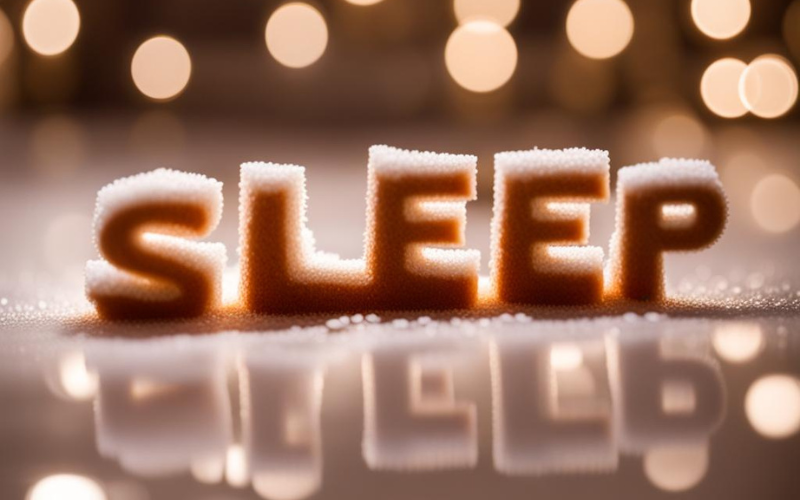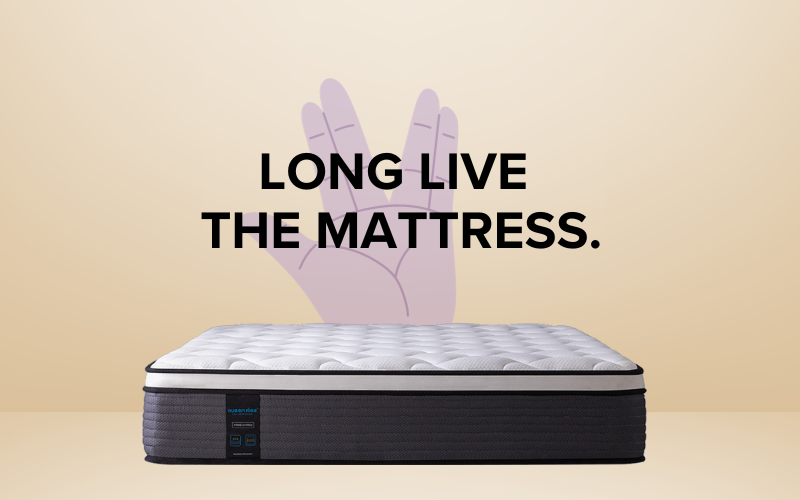Introduction

Sweet dreams or sugar nightmare, some nights, the culprit to our insomnia is not the caffeine from the ice cold coffee we had in the day but rather, the amount of sugar pumped into it. The impact of sugar on sleep is a multifaceted interplay that involves both physiological and behavioural factors. Following this article are several ways in which sugar can affect our sleep.
1. Blood sugar fluctuations

Consuming sugary foods, especially close to bedtime, can lead to rapid spikes and subsequent crashes in blood sugar levels. These fluctuations can disrupt the body's natural sleep-wake cycle, making it harder to fall asleep and stay asleep throughout the night. And as blood sugar levels experience a subsequent crash after the initial spike, the body may respond with physiological stress reactions, such as the release of stress hormones like cortisol. These stress responses can lead to sleep fragmentation, causing individuals to wake up intermittently during the night.
2. Nightmares and vivid dreams

The curious connection between consuming sugary foods before bedtime and experiencing a surge in vivid dreams or nightmares unveils a captivating aspect of the intricate interplay between diet and sleep. While the exact mechanisms remain shrouded in mystery, it is believed that sugar's influence on neurotransmitters and brain activity during the night plays a pivotal role in shaping the landscape of our dreams. Sugar consumption can lead to the release of hormones, including adrenaline, especially if blood sugar levels experience subsequent crashes. Elevated adrenaline levels can contribute to heightened arousal during the night, potentially influencing the content and intensity of dreams.
3. Disruption of Circadian Rhythms

Among these influences, the role of sugar emerges as a potential disruptor to our circadian rhythms, especially when consumed irregularly or in excess. Sugar consumption can influence the release of sleep-related hormones, including melatonin, which plays a crucial role in regulating the circadian rhythms, signaling to the body when it's time to wind down and prepare for sleep. Irregular sugar intake may interfere with the delicate balance of melatonin production.
4. Increased Arousal

Sugary snacks, especially those containing caffeine, can increase arousal and make it challenging for individuals to wind down before bedtime. This heightened state of alertness can delay the onset of sleep and reduce overall sleep duration. Individuals experiencing increased arousal may find their sleep efficiency compromised. This refers to the percentage of time spent in bed actually asleep, and heightened arousal can lead to more time spent awake in bed.
5. Hidden Sugars in Diets

The silent culprits in our diets, concealed within the seemingly innocent labels of processed foods and beverages, are the hidden sugars that often escape our conscious awareness. Many processed foods and beverages, including items that may appear healthy, harbour hidden sugars. These sugars can go by various names such as high fructose corn syrup, sucrose, or even alternative sweeteners, making it challenging for individuals to recognise them on ingredient lists. Therefore, it is important for individuals having trouble sleeping to develop a habit or reading the ingredient list and to identify ingredients that could potentially cause a sugar spike.
Sugar or no?

In the quest for restful nights, the impact of sugar on our sleep reveals a complex interplay between physiological and behavioural factors. From the disruptive dance of blood sugar fluctuations to the mysterious realm of vivid dreams and nightmares, sugar's influence on neurotransmitters and circadian rhythms shapes the landscape of our nightly rest. The disruption of circadian rhythms and increased arousal further complicates the delicate balance, making it challenging to wind down before bedtime. Identifying the silent culprits within processed foods—hidden sugars—highlights the importance of vigilant label reading for those seeking solace in sleep. In the means of pursuing your sweet dreams, understanding and mitigating the impact of sugar on sleep can pave the way for a more rejuvenating and quality night's rest.




Leave a comment
This site is protected by hCaptcha and the hCaptcha Privacy Policy and Terms of Service apply.